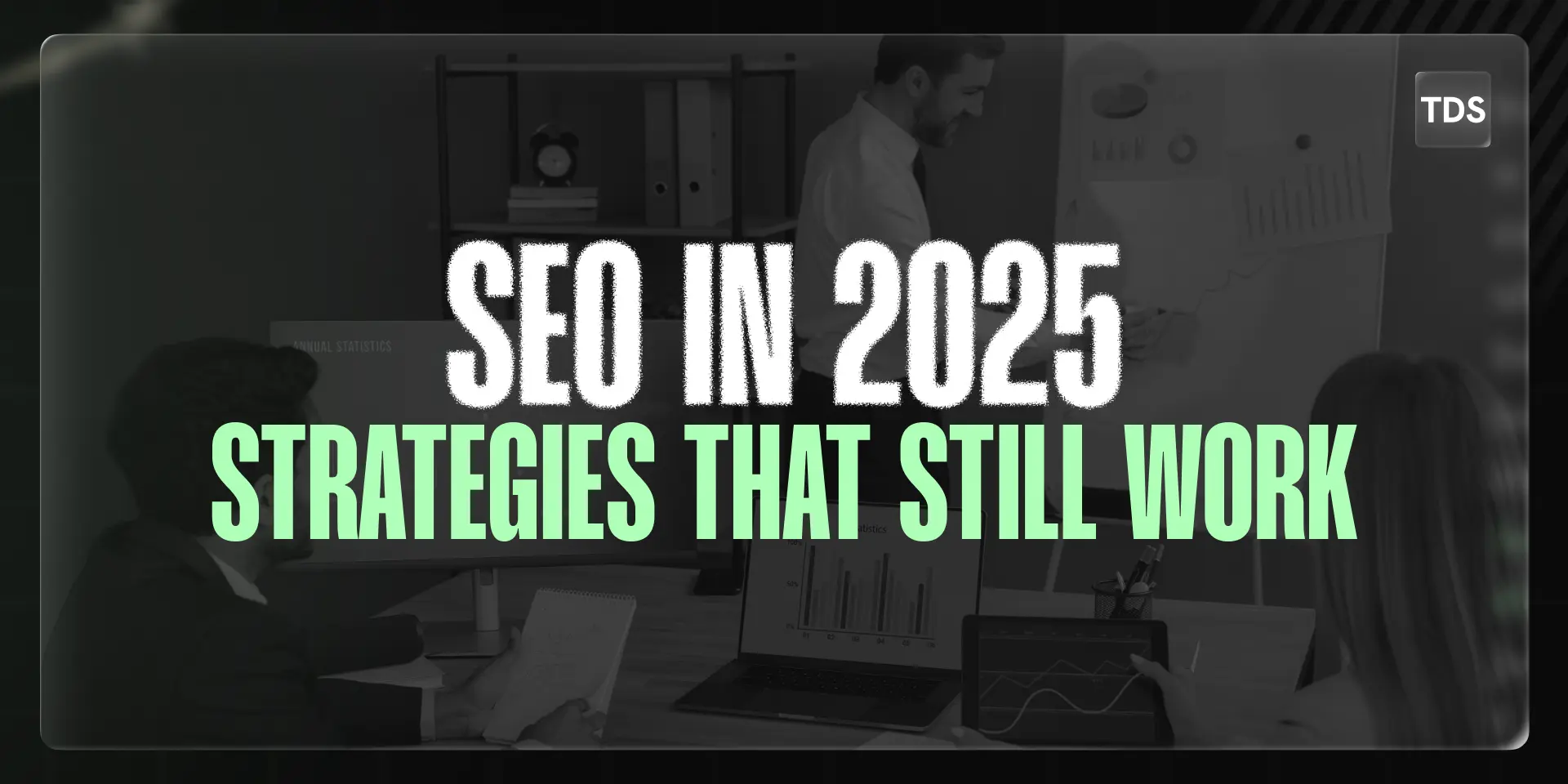The search world is still changing very fast but the principles of optimization are still the same. Businesses and creators are yet to be proficient with visibility, trusting, and relevance, in case they desire to grow organically. What has changed, though, is how content is interpreted by the search engines as well as how people are seeking the information. SEO strategies 2025 are geared towards embracing AI-based changes, keeping up with user intent, and adopting digital authority. Brands could not provide quick rankings, as they used to, any longer; they had to establish credibility on various search surfaces, traditional results, on AI snapshots, video platforms, and voice search requests.
Why SEO in 2025 Feels Different
The arrival of Google Search Generative Experience (SGE) has transformed the presentation of findings. Google has stopped just suggesting blue links; it instead leads to give summaries generated by AI and answer them contextually. This change implies that like a standard keyword targeting is no longer sufficient. Search optimization needs to take into account semantic SEO, structured data, and contents that act as input to AI summaries. There is less emphasis on a set of use of keywords and more emphasis on showing subject depth, authority and expertise.
Simultaneously, zero-click searches are on the increase. Search results frequently provide and even give answers, without clicking into websites. Websites that want to remain visible must also adjust and provide clear, structured and experience-rich content that the search engines can feature. This elevates such strategies as schema markup, frequently asked questions, and clustering of contents in the interests of SEO strategies to a new level in 2025.
Role of Semantic SEO and Content Clusters
Among the largest shifts of the past few years, one can measure the exit of isolated keywords and the entry of topic-driven clusters. Context analysis has been done by search engines to look at expertise and not individual phrases alone. Creating interrelationships of content around a pivot point is an indication of authority and assists Google in determining the relationships within a subject. That is why semantic SEO is imperative in 2025.
By forming clusters around essential knowledge, the companies not only enhance the ranking but also augment the chance of making it into the AI-enhanced overviews. As an example, a tech consultancy would publish longer insights into app development and then back it up with blogs into UI/UX, mobile frameworks, and case studies. The domain authority and visibility, as well as trust, is enhanced owing to this interrelated structure.
User Experience Remains a Ranking Factor
Algorithms become smarter, whereas user experience (UX) stays in the middle of ranking. In 2025 SEO strategy, Google continues to evaluate websites using Core Web Vitals: loading time, responsiveness and visual stability. The pages involving the fluid navigation finally ensure that individuals remain attached to those pages, reducing the level of bounces, and alerting search engines of the value in the content.
Mobile indexing also remains the order of the day. Most users have shifted to browsing with smart phones thus adaptive web designs should be used in particular websites to enhance device-friendliness and readability. Besides the technical performance, such aspects as accessibility, clear navigation, and interactive design contribute to SEO power.
The Power of E-E-A-T in Search Rankings
Search engines have become stricter regarding trust. The visibility is now a decisive factor of E-E-A-T (Experience, Expertise, Authoritativeness, Trustworthiness). Users and search engines want more than generic content, which can be seen in 2025. They desire something that will be supported by human understanding, knowledge and openness.
Demonstrating authorship, giving credible sources and inserting personal experiences will enhance authority. A brand featuring articles powered by SEO and that are not only clear of expertise but also marked with designated names, qualifications and industry examples provides signals on the quality of the article in a very noisy world where I can find AI-generated lines everywhere. Such a combination of human voice and data-based optimization makes content much more competitive within ranking systems.
Adapting to Voice Search and Conversational Queries
Voice search optimization is another trend that will inform the optimization of the SEO strategies 2025. Conversational search is prevalent with smart assistants, wearables, and in-car AIs. The formulations of queries have become lengthy, natural and in question form. The key to maximising this is the ability to develop material that reflects what is spoken, incorporate frequently asked questions, and actively answer the conversational questions.
Businesses can ensure capturing this increasing portion of search traffic by designing content in a flowing, naturally question-focused manner. As an example, rather than simply addressing the question, best project management software; content should address the question as well: What is the best project management tool to use with small business? Through such a movement, search is bound to reflect both text and voice.
Rise of Video SEO and Visual Discovery


Video has now become among the most powerful discovery channels in 2025. Such social platforms as YouTube, Tik Tok, and Instagram have become search engines of their own. Just as crucial as optimising web pages is optimising video content with transcripts, keywords, and descriptive metadata.
Such advertisements as brief education videos, tips, and professional content have an opportunity to top search positions in terms of video optimization. The inclusion of video in blogs, closed caption, and accessibility promotes visibility beyond search to all other social discovery tools. Because Google has been incorporating video results into SERPs more, brands employing this technique have rejected a multi-channel.
Automation, AI, and Programmatic SEO
Programmatic SEO and AI technology have made scaling content more efficient. AOI now allows businesses to expand keywords, link content, and analyse any content gaps. Nonetheless, automation in SEO strategies 2025 is also not intended to overrule human creativity, but rather helps it.
AI is capable of going through trends, coming up with outlines, yet human knowledge is required to build content that can foster trust. The key recipe is to find a way to balance automation and originality, where the content should be technologically optimised yet emotionally stimulating. Authenticity, that is, text that is felt to be uniquely human, is also favoured by search engines because engines continue to outperform mass-generated AI text.
Conclusion
It is not merely ranking that is the future of optimization but it is actually digital credibility. SEO strategies 2025 blend technology with storytelling, technical precision with user-first experiences, and automation with authentic voices. Brands that pay attention to relevance, authority, and trust and move with innovations such as Google SGE and semantic SEO and video-based discovery are the most successful ones.
The only constant thing is that SEO is a long term strategy. No matter what performance type to maximise, be it AI snapshots, conversational queries, or Core Web Vitals as businesses, it is important to remember that visibility is what follows credibility. The brands have to build content that is user-centric, reliable and well-organised with a clear goal, to succeed in a search quantum based on both AI and human agendas.
FAQs on SEO Strategies 2025
The best SEO strategies for 2025 include semantic SEO, content clustering, Core Web Vitals optimization, E-E-A-T signals, and readiness for Google’s SGE as well as voice search.
Google’s Search Generative Experience (SGE) transforms the delivery of results, thus requiring sites to be prepared for a new type of summary generated by AI through highly structured contextual, and authoritative content.
Yes, voice search optimization is a critical part of SEO strategies 2025 because conversational queries keep increasing with the use of smart speakers and AI assistants.
Right at the heart: Optimized transcripts, metadata, and embedding videos into blogs help websites rank high while getting to audiences on platforms like YouTube and TikTok.
AI helps with programmatic SEO and automation, but in 2025, the SEO strategies that work are still heavily based on human creativity, expertise, and trust-building content for sustainable rankings.
